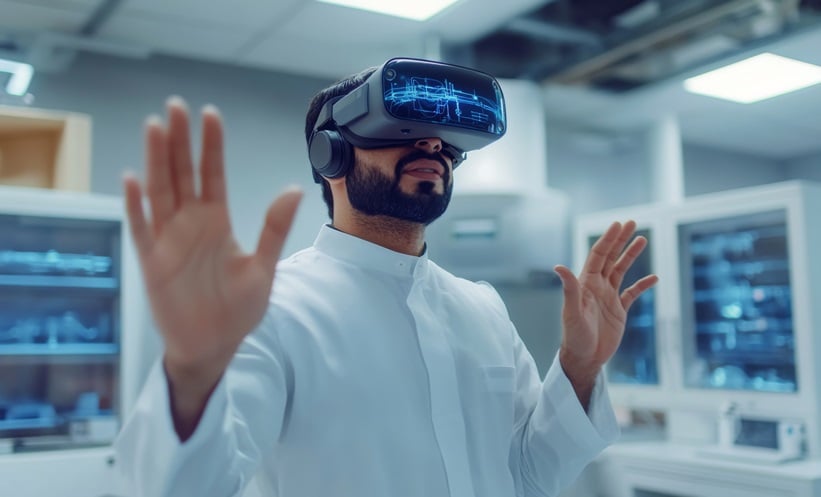IMMERSIVE virtual reality meditation significantly reduces symptoms of depression and anxiety while enhancing emotional regulation in hospital inpatients with Major Depressive Disorder (MDD) and Generalized Anxiety Disorder (GAD).
Mindfulness-Based Cognitive Therapy (MBCT) is a widely recognised non-pharmacological approach to managing depression and anxiety. While technology-based MBCT is cost-effective, concerns remain regarding its feasibility and effectiveness in clinical settings. This study aimed to examine the long-term relationship between emotional regulation, as measured by electrocardiogram (ECG) biofeedback, and improvements in depression and anxiety following participation in Immersive Virtual Reality Meditation (IVRM). Given the projected rise in global depression rates, identifying effective, accessible, and scalable interventions is crucial for clinical practice.
A single-arm longitudinal clinical trial was conducted with 26 hospital inpatients diagnosed with MDD or GAD. Participants engaged in IVRM sessions three times per week for ten weeks using Oculus Quest 2 digital headsets, which provided guided meditation experiences tailored to individual preferences. HeartMath ECG biofeedback was used to measure emotional regulation, with changes quantified through Coherence Achievement Score (CAS). Pre- and post-intervention assessments included the Generalized Anxiety Disorder-7 (GAD-7) and Patient Health Questionnaire-9 (PHQ-9) scales. Statistical analysis using a Generalized Estimated Equation (GEE) revealed a significant association between increased CAS scores and reductions in both depression and anxiety symptoms, providing strong evidence that IVRM enhances emotional regulation and psychological well-being.
The study confirms that IVRM is an effective complementary intervention for reducing depression and anxiety among hospital inpatients, supporting its integration into clinical practice. Unlike traditional meditation, IVRM offers a highly personalised experience, allowing users to select tailored environments and guided meditations to enhance engagement and therapeutic benefits. The use of HeartMath biofeedback further validates IVRM’s efficacy in promoting emotional regulation. Given these findings, mental health professionals should consider IVRM as an adjunct to existing treatment plans. Future research should explore IVRM’s long-term benefits, potential for home-based use, and comparative effectiveness against other non-pharmacological interventions. As the prevalence of depression and anxiety continues to rise, technology-driven solutions like IVRM hold promise for improving mental health outcomes in clinical and community settings.
Katrina Thornber, EMJ
Reference
Lee J et al. The impact of immersive virtual reality meditation for depression and anxiety among inpatients with major depressive and generalized anxiety disorders. Front. Psychol. 2024;DOI:10.3389/fpsyg.2024.1471269.








